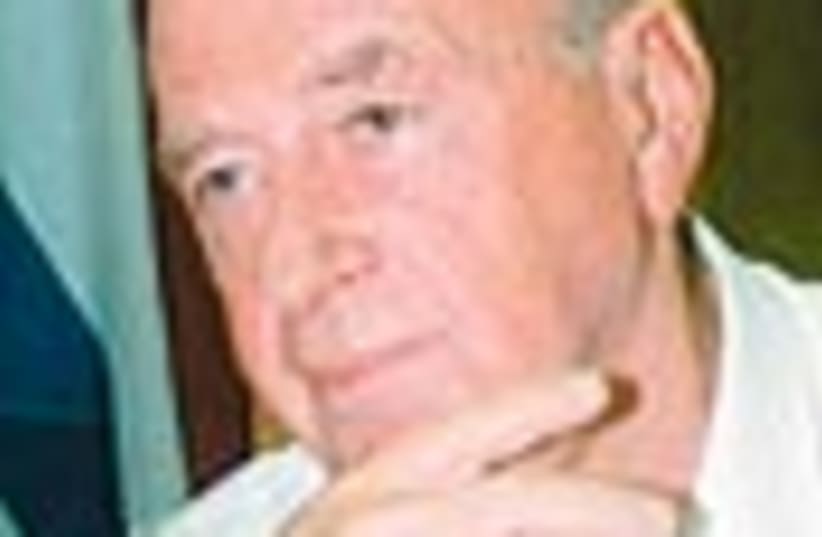How much more so do we attribute to great people who have passed on - soldiers, statesmen, and politicians. And if people in these categories do not die a natural death but are killed in battle or assassinated, we glorify them even more.
Few people would deny the contributions that Yitzhak Rabin made to the State of Israel as soldier, statesman, and politician. But if he had done nothing more before he went to meet his maker, he would be remembered only by his peer generation.
But Rabin was destined to become Israel's best-remembered prime minister for all the wrong reasons.
He was the first - and hopefully the last - prime minister of Israel to be murdered while in office. This in itself guarantees him a place in the minds of future generations of Israelis.
Levy Eshkol, who was prime minister from 1963-69, also died in office at an age much the same as Rabin's. But few people remember Eshkol these days, even though he helped found one of the first kibbutzim and subsequently the histadrut, and was prime minister during the Six Day War, at which time Rabin was IDF chief of staff.
Young Israelis today don't know much about Eshkol nor about Moshe Sharett, who was the second person to hold the office of prime minister. If they know about Golda Meir, who succeeded Eshkol and preceded Rabin in his first stint as prime minister, it is mainly because she was the only woman prime minister.
If Rabin had died a natural death on the very night that he was assassinated, the media would have reviewed his military, diplomatic, and political careers accompanied by a good selection of archive photos - and that would have been the end of it, but for annual state commemorations on the anniversary of his death. Such commemorations are held on the anniversaries of the passing of all of Israel's deceased presidents and prime ministers.
Rabin's memory has been perpetuated through the attachment of his name to numerous institutions, highways, and projects, not least of which is an annual mass peace rally, because it was at a peace rally that he paid the supreme sacrifice. The ritual candle-lighting ceremonies accompanied by the singing of patriotic songs has served as a vehicle for bringing young people together in what is almost a Woodstock-like atmosphere, replete with guitars and messages of peace, harmony, and brotherly love.
This year, on the 10th anniversary of his assassination, there are even more commemorative events in Israel and abroad than in past years. It will continue that way on the 20th anniversary, the 25th, and the 30th, and even beyond the lifespans of his grandchildren.
The assassination of Yitzhak Rabin changed life as we knew it.
As someone who was his neighbor, living only three buildings away from his official residence during both his periods of office, I can testify to the difference in security.
Rabin was the first prime minister to take up residence in the house on the corner of Balfour and Smolenskin streets in Jerusalem. When he first moved in, there was a low fence and a glass-paned door. Reporters on stakeout used to gather directly opposite the house and, by watching the shadows behind the glass panel, could assess whether a newsworthy meeting was about to conclude. They then swarmed across the road to crowd around whoever was exiting the house and ply them with questions.
That sort of thing cannot happen anymore. No one is allowed to assemble directly opposite the prime minister's residence - not the way they did then, nor in the way they did for the protest sit-ins on Rehov Balfour during the 1982 Lebanese War under the Begin administration, nor the subsequent sit-ins by the families of members of the Jewish underground during the first Peres administration.
Small groups of tourists are permitted to gawk for a couple of minutes, but the whole area around the house has been turned into a fortress with an ever-increasing number of security measures and devices.
Whereas Rabin used to nonchalantly walk out of the front gate and into the car, or exit from the car that was parked in the street, Prime Minister Ariel Sharon is never seen in the street. He enters and exits the car behind the closed doors leading to the driveway inside the residential compound.
When Yitzhak Shamir was prime minister, he liked to take a daily constitutional around the neighborhood. His bodyguards were none too happy but they walked with him, and neighbors called out greetings along the way. There is no chance that we will see Sharon walking through the streets of any city in Israel.
Without wishing to detract one iota from the debt that the nation owes to Rabin, one cannot help but realize that without the assassination, the eulogies would have been a lot different - and so would the lives of the nation.
| More about: | Yitzhak Rabin, Yitzhak Shamir, Moshe Sharett, Golda Meir |
